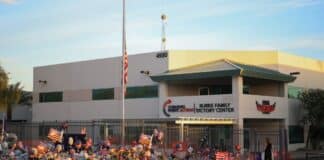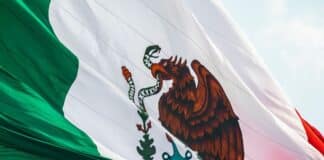The Kosovo government has accused Serbia of orchestrating the bombing of a vital pipeline that supplies water and electricity to northern Kosovo’s ethnic Serb population. The explosion in Zubin Potok, which used approximately 20 kilos of explosives, is being labeled a terrorist attack by Kosovo officials. While no direct evidence links Russia to the incident, some in Kosovo claim Russian President Vladimir Putin could be leveraging Serbia to destabilize the Balkans.
Kosovo Prime Minister Albin Kurti drew parallels between the attack and Russian tactics targeting infrastructure in Ukraine, placing the blame squarely on Serbian President Aleksandar Vučić. Kosovo’s U.S. ambassador, Ilir Dugolli, called the blast a continuation of Serbia’s aggression, accusing the Vučić regime of exploiting organized crime and fostering instability. Eight suspects connected to the attack were arrested, and Kosovo police seized heavy weaponry and military equipment during raids.
Serbia has denied any involvement. Vučić called the accusations “baseless” and claimed they were part of an effort to tarnish Serbia’s international reputation. Serbian Foreign Minister Marko Djuric echoed this sentiment, suggesting the incident was a “hybrid attack” designed to discredit Serbia. Both leaders have demanded a transparent international investigation and hinted at Kosovo’s possible involvement, though they provided no evidence.
Russia’s historical and cultural ties to the Balkans add a layer of complexity. Experts like Ivana Stradner of the Foundation for Defense of Democracies argue that Putin exploits ethnic and religious divisions in the region, using Serbia as a tool to destabilize the Balkans and gain leverage over the West. Agim Nesho, a former Albanian ambassador, noted that Russia’s influence in the region is evident in events like the attempted assassination of Montenegro’s former president and the rise of pro-Russian political parties.
The explosion exacerbates longstanding tensions between Serbia and Kosovo, whose relations have remained fraught since Kosovo declared independence in 2008. Ethnic Serbs in northern Kosovo still view Belgrade as their capital and refuse to recognize Kosovo’s sovereignty. Both nations aspire to join the European Union, but normalization of their relationship is a prerequisite for EU membership and financial aid.
The EU’s High Representative for Foreign Affairs, Kaja Kallas, facilitated talks between Vučić and Kurti in Brussels, emphasizing that normalization is essential for both countries’ EU accession. Continued turmoil threatens their membership bids, highlighting the urgency of resolving their decades-long conflict.





